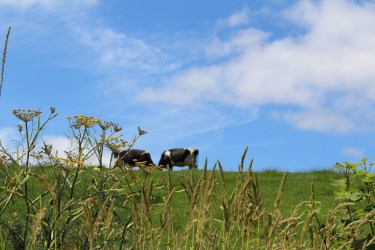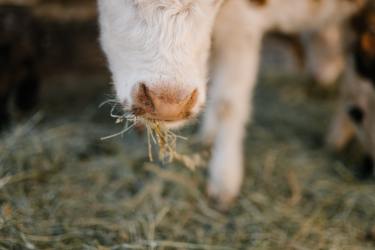By Andrew Suddes
We are all aware of the current cost of living crisis amid rising Inflation. Brexit, the Russian invasion of Ukraine, and the aftermath of the Covid-19 pandemic have all contributed to push up prices and set in chain rising inflation. Agriculture has been hit hard by these pressures. Agflation refers to the exponential increase in the cost of agricultural production which has ripple effect on food prices and associated purchasing habits.
Since March the pound fell in value by 10% compared to the dollar. By raising interest rates the Bank of England are trying to prevent further falls in its value and to control inflation. Most of what is happening is outside any individuals influence and control but there are tactics which will help to mitigate the impact of agflation shock. Effort needs to be focussed on controlling the controllable.
Control what you can control
| Controllable | Beyond Your control |
| Business Performance | Weather |
| Capital Expenditure | Market Prices |
| Buying Policy | Input cost inflation |
| Input volumes | Interest rates |
Monetary Policy
The feasible economic responses are limited, but the government will take steps to ease the so called “cost of living crisis”. The main tools at the disposal of the Government and the Bank of England Monetary Policy Committee (MPC) are to raise interest rates and reducing taxation. With a new Prime minster set to take over in September it is difficult to predict the future direction of monetary policy, although there is only so much the government can do. There really is no “Magic Money Tree”. We expect tax cuts to be small and perhaps targeted to ease the cost-of-living crisis and achieve political support.
Higher interest rates will increase borrowing costs, making investment less attractive. The incentive is to save rather than spend.
It is extremely likely that we will see successive interest rate rises. Early August saw a sixth successive interest rate rise, with base rate now at 1.75%.Recently,The Bank of England has warned that inflation will peak at around 13% this year. Concerningly, annual Agflation is currently estimated at 23.5%. This is almost certainly going to drive more interest rate rises . If your business operates on high borrowing it is important to calculate the effect on profits of rising interest rates. The chances are you will need more working capital to run your business.
What can you control?
Business Performance
It has never been more important to maximise the margin per head/acre on your farm to generate a cash surplus to cover rising input, overhead and potentially borrowing costs. Focus on this crucial area and take advice to maximise this figure. Consider marginal gains – small incremental improvements across a range of processes which ultimately accumulate to a significant difference. Develop a plan to keep improving your farm to deliver a sustainable return.
Buying Policy
Price hikes in fuel, feed and fertiliser will have tightly squeezed margins. To a large extent this has been offset by gains in selling prices. But the interaction of costs and outputs will yield very different results depending on the system. Low input systems are far less impacted by high inflation. It is worth getting an accurate and current view of your margins, from there you can assess where the critical price points are for key inputs such as feed or fertiliser. This can help to formulate a buying policy that helps you to maintain resilience in the light of the unique set of circumstances we find ourselves in.
Capital Expenditure
For many highly profitable businesses the temptation may be to reduce tax liabilities by investing in machinery and other items. This should be carefully planned and you should critically analyse this against the alternative, in terms of keeping hold of your cash and having a “rainy day fund”. Consider which capital expenditure will actually make your business better and help to increase returns or make it more resilient to future shocks. Any funds gathered can be used more effectively to improve or grow your business.
Key Messages:
A common feature of successful businesses is to accurately evaluate the options open to them and their ability to focus on the areas they can control. Use the team around you (whether that be staff, family or trusted professionals) to assess the business position and to plot a way forward that helps build resilience and take advantage of future opportunities. We strongly advise you to consider these questions:
- Further interest rate rises are likely – how will they affect you and your business?
- Do you have access to enough cash (credit) in the event of further input cost increases or falls in the price of your products?
- Have you identified and implemented at least three tactics that will drive improvements in business performance?
- Do you have the information you need to answer these questions?
Promar International are the leading advisor to the farming and food supply chain in the UK. We work with our clients on an individual basis to understand and achieve their business aims. This includes offering support on technical issues on farm as well as assisting with business planning matters such as family succession or staff management.







